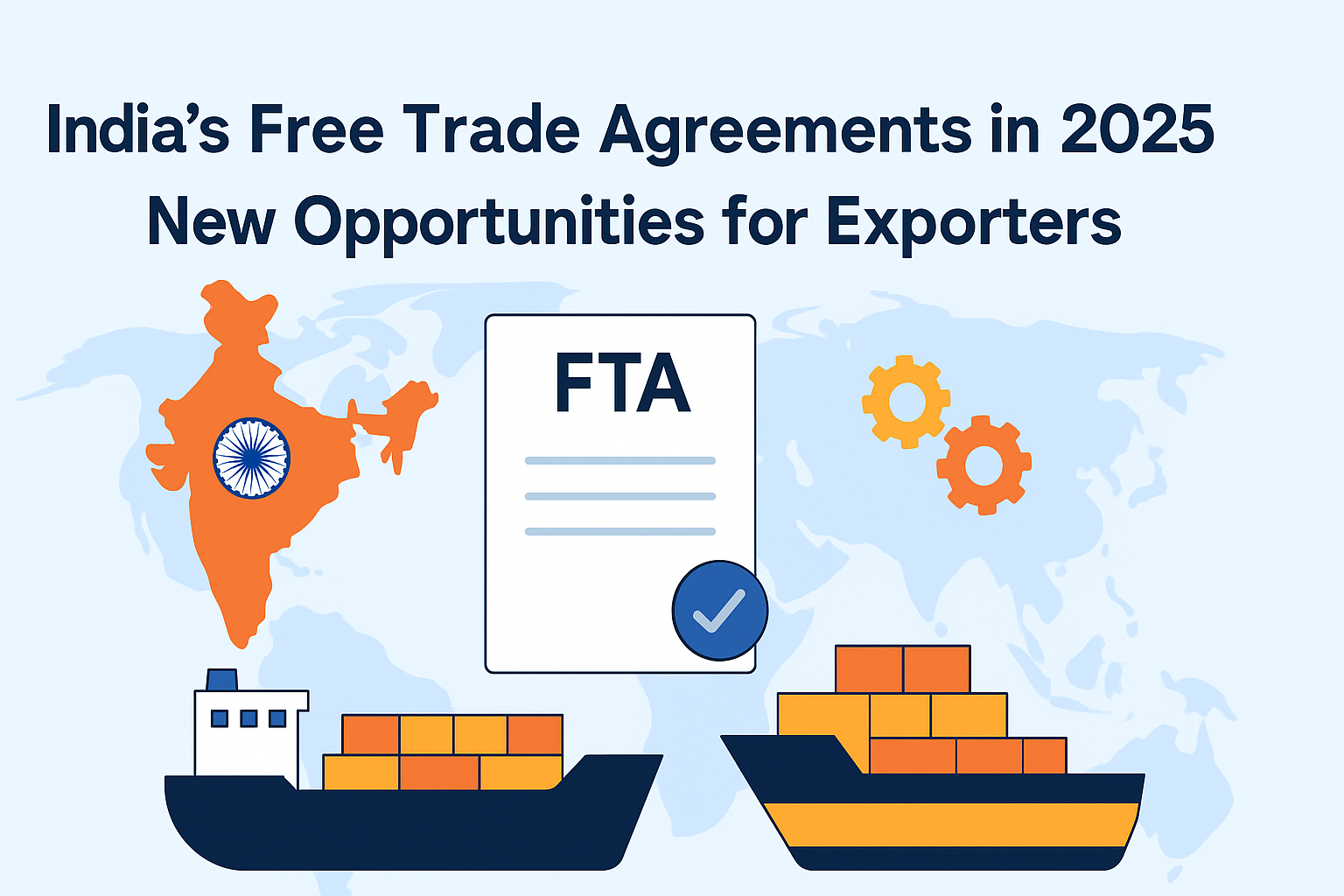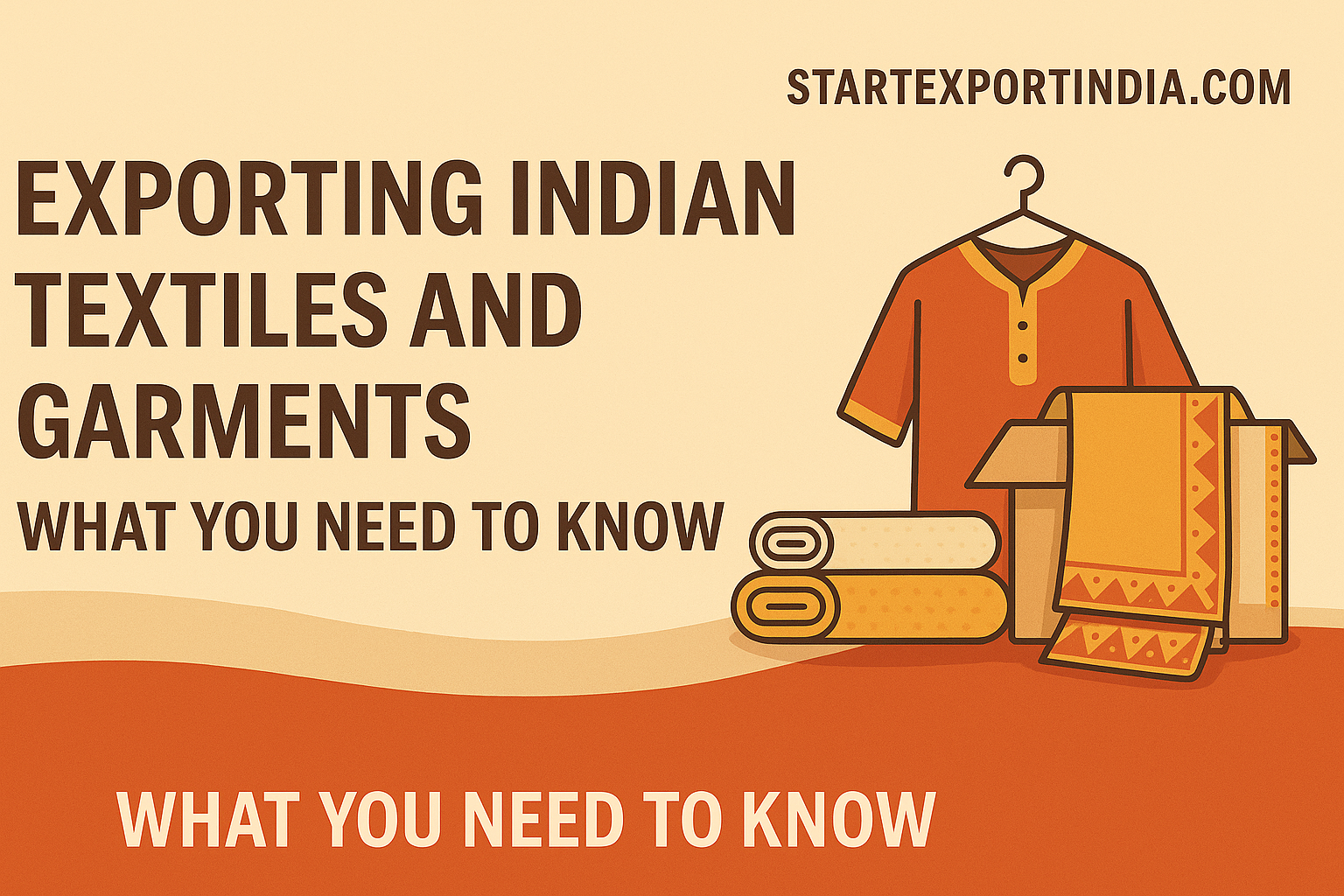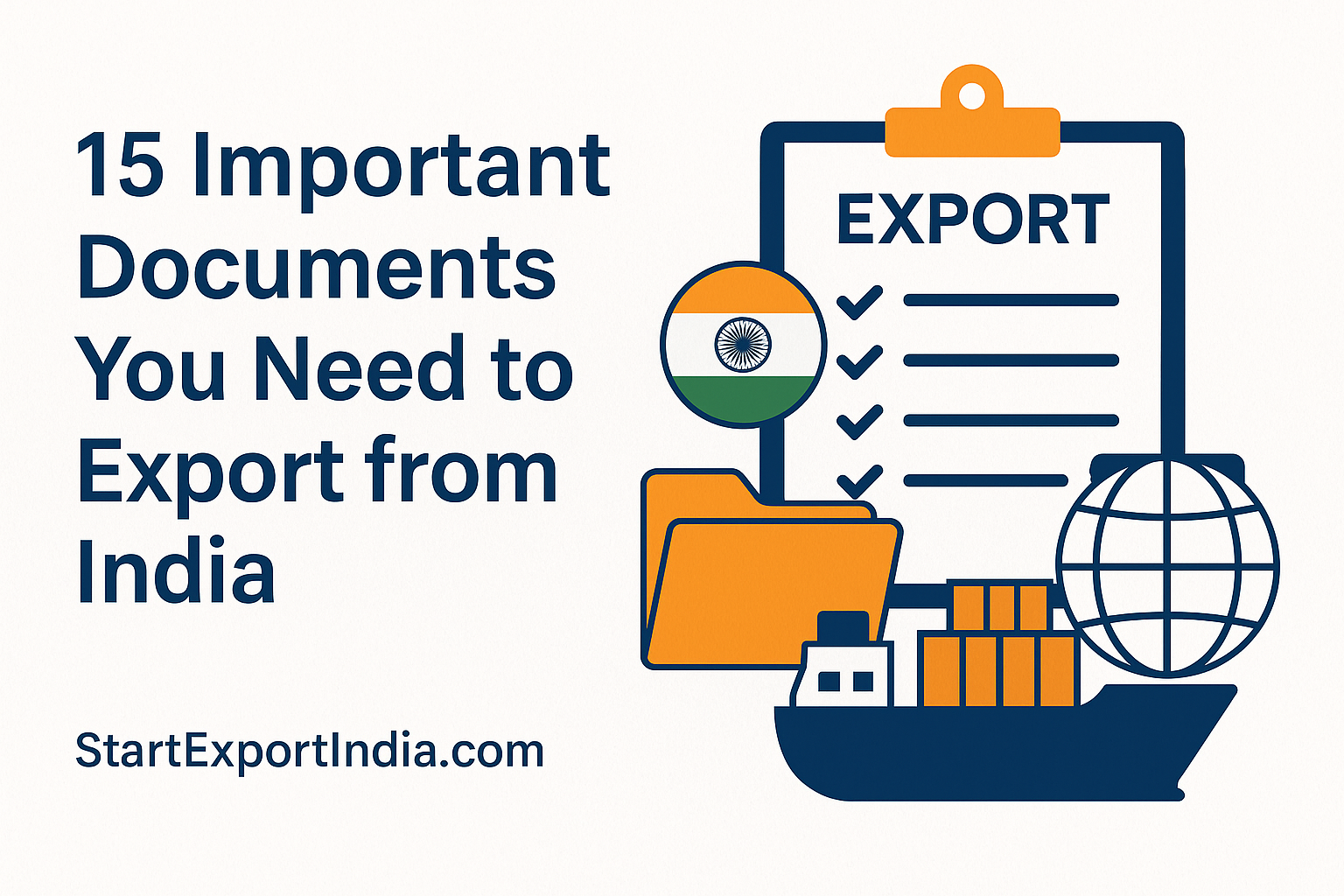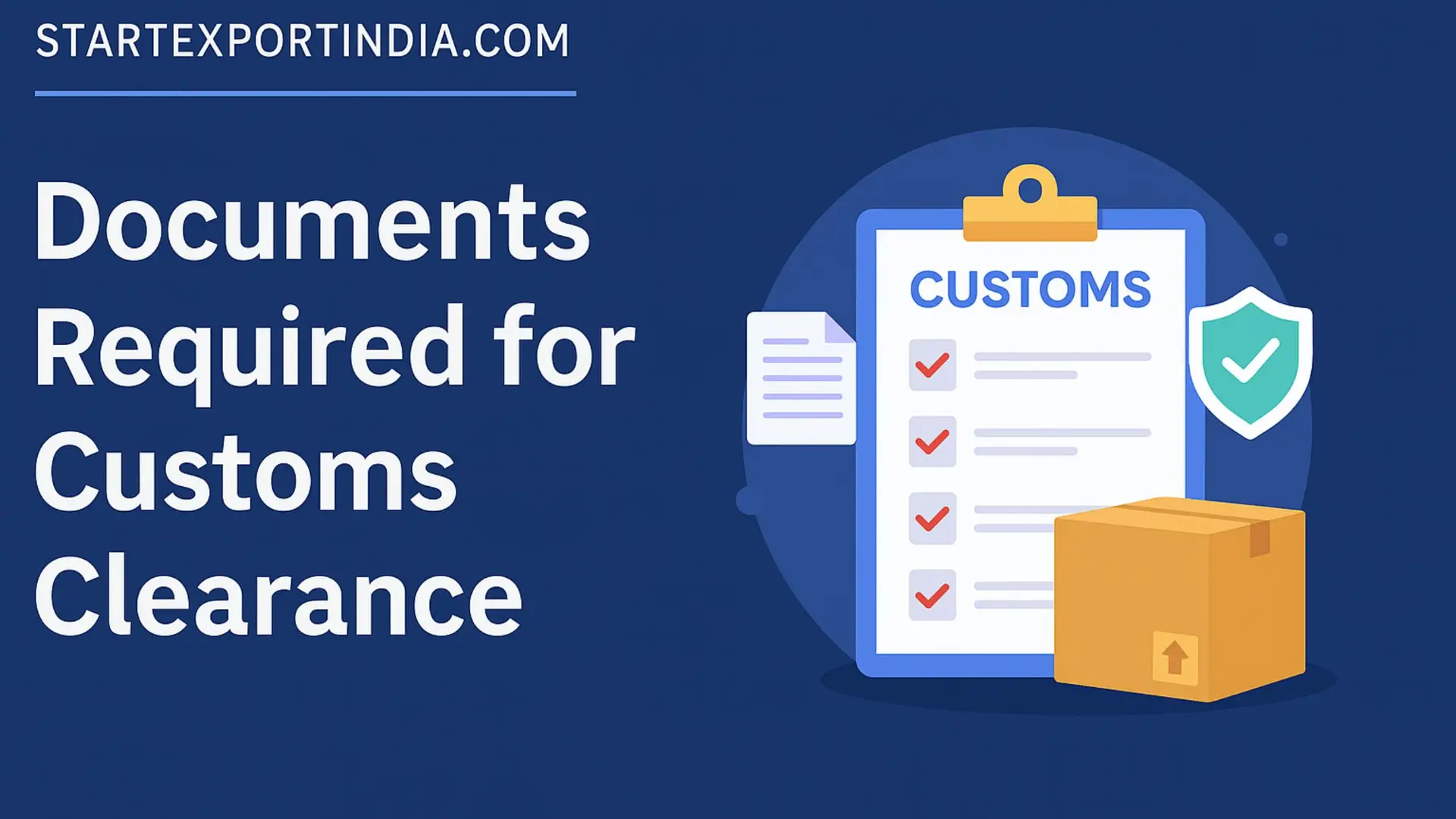India’s Free Trade Agreements in 2025: New Opportunities for Exporters
🧭 Introduction
India’s Free Trade Agreements in 2025: 2025 has ushered in a wave of new Free Trade Agreements (FTAs) for India, unlocking doors to lucrative international markets. From reduced tariffs in the UAE to expanded quotas in Australia and potential EU access, these FTAs are game-changers for Indian exporters. This guide explores how you can leverage India’s latest trade deals to grow your export business in 2025.
📚 Table of Contents
- 🧭 Introduction
- 📚 Table of Contents
- 🌐 1. What Are Free Trade Agreements?
- 🏛️ 2. India’s Major FTAs in 2025
- 💼 3. How Exporters Benefit from FTAs
- 📦 4. Top Export Sectors Gaining from FTAs
- 📑 5. FTA Documentation & Compliance
- 🔍 6. How to Check FTA Benefits for Your Product
- 📈 7. Case Study: Indian FMCG Exports to UAE Under CEPA
- 🚫 8. Common Mistakes to Avoid
- 🛠️ 9. Tools & Resources for FTA Users
- 🧠 10. Final Tips for 2025 Exporters
- 🧾 Conclusion
🌐 1. What Are Free Trade Agreements?
FTAs are bilateral or multilateral trade deals that reduce or eliminate import/export duties between two or more countries. They help:
- Lower tariffs
- Improve market access
- Simplify documentation
- Enhance competitiveness of exports
🏛️ 2. India’s Major FTAs in 2025
Here are the trade agreements reshaping India’s export landscape:
- India–UAE CEPA (Comprehensive Economic Partnership Agreement)
- India–Australia ECTA (Expanded Economic Cooperation and Trade Agreement)
- India–UK FTA (finalized in early 2025)
- India–EU FTA (negotiations nearing closure)
- India–GCC FTA (draft framework signed)
💼 3. How Exporters Benefit from FTAs
- Reduced customs duties on exports
- Higher competitiveness in target markets
- Easier access to global supply chains
- Faster clearance under preferential trade routes
- Growth in SME exports via quota and simplified rules
📦 4. Top Export Sectors Gaining from FTAs
- Agro & processed food (no-duty access to UAE, UK)
- Pharmaceuticals (fast-track approvals in Australia)
- Textiles & Garments (reduced tariffs in UK & EU)
- Engineering Goods (zero duty access in Gulf & Africa)
- Jewelry & Gemstones (duty-free entry in UAE)
📑 5. FTA Documentation & Compliance
To claim benefits under an FTA, you need:
- Certificate of Origin (CoO) – from DGFT-authorized agencies
- Product HS Code mapping with eligible FTA categories
- Export invoices with reference to FTA clause
- Shipping documents showing eligible port/country
🔍 6. How to Check FTA Benefits for Your Product
Use tools like:
- Indian Trade Portal (http://indiantradeportal.in)
- FTA Tariff Finder (by FIEO/DGFT)
- Customs duty calculator on ICEGATE
- Consult your CHA or freight forwarder for port-wise details
📈 7. Case Study: Indian FMCG Exports to UAE Under CEPA
After CEPA came into effect:
- Import duty on namkeens, biscuits, instant foods dropped to 0%
- Labeling laws aligned, making entry easier
- Indian brands like Haldiram’s, Bikanervala, and Patanjali gained shelf space in Dubai and Abu Dhabi
🚫 8. Common Mistakes to Avoid
❌ Not applying for Certificate of Origin
❌ Using wrong HS Code for claim
❌ Assuming all products under FTA are duty-free
❌ Missing local compliance like labeling or shelf-life laws
❌ No mention of FTA benefit on invoice
🛠️ 9. Tools & Resources for FTA Users
- DGFT FTA Dashboard
- ICEGATE Portal
- FIEO FTA Newsletter
- APEDA / EPCs (Export Promotion Councils)
- Chambers of Commerce Certificate Issuance Portals
🧠 10. Final Tips for 2025 Exporters
✅ Always map your product HS Code with FTA clauses
✅ Collaborate with local importer for labeling compliance
✅ Track new FTAs — like with Canada, Africa, Latin America
✅ Highlight “zero-duty under FTA” when pitching to buyers
✅ Keep copies of CoO & shipping docs for audit
🧾 Conclusion
India’s evolving trade landscape is full of opportunity for smart exporters. By understanding and applying FTA benefits, you can gain a significant cost advantage and expand your market reach in 2025.
📘 Bonus Resource
👉 Want to build your export business from scratch — with all legal steps and strategy?
📕 Download our ₹299 beginner eBook – Start Exporting from India in 30 Days



